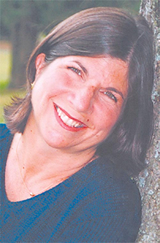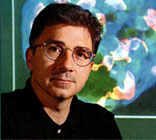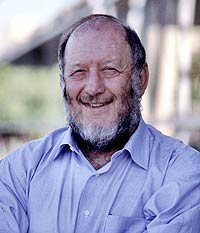Michael Fumento
Factual · Powerful · Original · Iconoclastic
Why the Media Miss the Stem-Cell Story
January 01, 2005 · Michael Fumento · Focus on the Family · Biotech
ESC supporters claim there’s no disease the cells can’t fix.
There’s little doubt that opponents of embryonic stem cell (ESC) research have their work cut out for them. Polls repeatedly show large majorities (in the 60-70 percent range) want the federal government to promote and fund the research. Californians backed their opinions with money with 59 percent of those who showed up at the polls voting for last November’s Proposition 71, which will funnel $3 billion of the cash-strapped state’s funds into embryonic stem-cell research over the next decade.
But why – on a scientific issue, about which most people know relatively little – does public opinion seem so lopsided?
One explanation is that the polls often feature loaded questions that begin with tales of the medical miracles ESCs will allegedly bring us: cures for Parkinson’s, Alzheimer’s, diabetes, you name it. They don’t even try to find out whether respondents really have any idea of what ESC research is. And as a rule, they don’t mention possible alternatives – namely, so-called adult stem cells (ASCs), which are obtained without the ethical conflicts of harvesting human embryos.
But the biggest reason may simply be that the mainstream media are doing a lousy job of informing the public on the state of stem-cell science. By and large, they’re telling people all about the potential of ESCs – especially the supposed ability to become any type of cell-without talking about certain little drawbacks, like a tendency for ESCs to be rejected and even to become cancerous.
Perhaps more important, the media aren’t telling people how much more advanced ASC research is, or how rapidly it’s making breakthroughs. Certainly they’re not telling people about it nearly as often as they’re hailing the promise of ESCs – and when they do, they tend to undermine the news with pooh-poohing, often-groundless quotes from ESC advocates. (More on that later.)
As a science writer who has covered the topic extensively, I know something about this. I see the media coverage practically every day. On rare occasions I’ll find blatant falsehoods: Last August, for example, influential New York Times science writer Gina Kolata told readers "so far, no one has succeeded" in getting adult stem cells to treat diseases. That statement either reveals startling ignorance or is an outright lie: Adult stem cells routinely treat or cure more than 80 different diseases, while no ESC research is anywhere near becoming a human clinical trial.
Usually, though, I see something less blatant, but perhaps more harmful: a subtle but persistent bias in reporters’ choice of subject matter, interview subjects and quotes, all skewing the reader toward embryonic stem cells and away from any alternatives.
Nor am I the only one who’s noticed.
I talked to a number of stem-cell researchers and the only journalist willing to be interviewed for this story and found a consensus that there’s a strong media bias. What interested me most, though, were their thoughts on how and why that bias comes into play – and the role of factors like attitudes toward religion, manipulation by the pro-ESC lobby, and just plain ignorance and laziness.
Galileo revisited?

Anna Quindlen is the only journalist who’s admitted she supports ESC research as a way of legitimatising abortion.
Many pro-lifers suspect that the media’s pro-ESC bias has to do with their politics on issues like abortion and euthanasia. There may be something to that, but it’s hard to pinpoint. The only major example is a 2001 Newsweek column by Anna Quindlen, who spoke warmly of the prospect that fetal-tissue and ESC treatments could soften public opposition toward abortion, bringing "a certain long-overdue relativism to discussions of abortion across the board."
More likely what’s going on involves reporters’ attitudes toward religion-or more precisely, religion in science and public-policy debates. In their minds, ESC backers have a purely scientific motivation while ASC backers have a religious one. Many journalists may see themselves as defending science against religion: They may have missed Galileo’s trial, but by golly they’re here for this one. (That attitude is sometimes seen most clearly outside the mainstream media. In the liberal magazine The American Prospect, for example, Chris Mooney wrote a recent piece sneering at "the Christian right’s new ’science.’ ")
There’s a great irony here, however. As these reporters picture themselves standing for the cause of reason against the forces of dogma, they also don’t realize that the ESC research vocabulary-so filled with "mays" and "coulds" and "one days," promising a miraculous future somewhere down the road-reflects a dogma all its own.

Douglas Melton, an "ASC researcher" devoted to showing ASCs are worthless.
Consider Harvard’s Douglas Melton, a diabetes researcher better known for attacking successful ASC efforts than making any real progress on his own with ESCs. He’s one of the most-quoted stem-cell experts in the country, and was named last year’s Policy Leader of the Year for 2004 by the politically correct Scientific American for having "advocated and enabled more extensive studies of embryonic stem cells."
But what, precisely, has Melton accomplished toward curing diabetes with ESCs? When interviewed by The Wall Street Journal last year, the most he could say was "We are convinced we can do it. We just don’t know how."
That’s not science; that’s faith. But it’s not a religious faith, and so reporters don’t see it for what it is.
Ignorance and sloth
In asking why ESCs get better press, it’s important to bear in mind that while investigative journalism may not be dead, it’s certainly on life support.
Most reporters get their information the same way you do – from other reporters. To the extent they use a primary source, such as an interview subject, they get their names from other reporters as well. You’ve heard the term "famous for being famous," but likewise the world is full of people who are experts for no other reason that at some point somebody in the media anointed them one.
"They pick a couple of favorites and take a quote and that’s it," complains Dr. David Prentice. Prentice is a biologist and former ASC researcher who’s now a senior fellow for life sciences at the Family Research Council in Washington, D.C. "Most reporters just want a sound bite – [either] a controversial sound bite or one that backs up their preconceived notion. For some reason, they don’t want to report."

Reporters who blow the stem cell stories are probably more slothful and ignorant than biased.
Reporters are busy and deadline-oriented, and as much as they complain of being "flacked" by PR departments, their choice of stories, of angles and expert quotes is often determined by which side hits them first with an e-mail or phone call.
There’s no question that the ESC lobby has the upper hand here. It’s organized and it’s wealthy: In the case of California’s Proposition 71, supporters outspent opponents by 62-1. Because the text of the Proposition runs to 9,000 words, voters didn’t read it; advertising and media coverage made all the difference.
The very fact that the science isn’t on their side dictates that the ESC lobby must do something to make up for it – so they work the press, to their benefit. ASC researchers feel much less pressure, often believing success is the best PR – so they neglect the press, to their detriment.
Case in point: Ira Black, a neurologist at the Robert Wood Johnson Medical School, is one of the most important ASC researchers in the country, the author or co-author of more than 200 peer-reviewed studies. He’s also head of one of four labs that has published results showing the ability to convert ASCs into all three "germ layers" formed during early embryonic development. (One gives rise to connective tissues, muscles, and the circulatory system. One leads to development of the skin and the nervous system. The last gives rise to the gastrointestinal tract, respiratory tract, and endocrine glands.)
The importance of such findings can’t be overstated, since the only advantage ESCs ever appeared to have over ASCs was the ability to become all cell types. With that gone, the excuse for ESC research vanishes.
Yet judging by the Nexis media database, Black gets about a fourth of the publicity of the aforementioned ESC enthusiast Douglas Melton.
Black says he believes the media are biased toward ESCs, and the main reason is simple ignorance. "We [scientists] have to do a better job educating altogether," he says. "We’re not doing the best job we can do." Yet when asked if his department had so much as put out press releases, he said no. "It’s not my job; I’m a scientist and a physician."
That attitude may be understandable, but it’s not good enough, according to Boston cardiologist Douglas Losordo – because it doesn’t address "the reality of our [mass media] culture."

Most ESC scientists are in it only for pure research, but they realize they can’t raise money unless they insist their work will someday lead to fantastic medical cures.
Losordo heads another lab that converted marrow cells into those of all three major categories. He’s frustrated that even "our legislators don’t even know about" what’s being done with ASCs, he says. "Part of our job as scientists is to publish to colleagues, but part of it is also to help educate the public."
If a lot of adult stem-cell researchers aren’t exactly media-savvy evangelists for their cause, it’s important to recognize some of the reasons their voices are muted.
ASC researchers fear having their funds cut off by the National Institutes of Health, which – despite the limitations laid down by President Bush – is seen as overwhelmingly biased toward ESC research. A search of the NIH grant database from 2001 to the present, using the term "embryonic stem cell," brings up a list of 750 grants. For ASCs the list is a mere 140, with an additional 139 for umbilical-cord stem cells.
ASC researchers also fear having their papers turned down by the major publications. The two most prestigious science journals in the world, Science and Nature, are overwhelmingly pro-ESC research, but do run some papers presenting the benefits of ASCs. So ASC researchers figure they have a chance of getting published – if they pay homage to the editors’ enthusiasm for embryonic stem cells.
Between concerns over money and publication, you can see why researchers aren’t eager to make enemies by criticizing the potential of embryonic stem cells. (No one wants to be heard bashing the boss’s fair-haired boy.) Sometimes ASC researchers let their true beliefs slip: I’ll hear them say things like "adult stem-cell research is what’s on the move; embryonic stem cells are going to fade in the rearview mirror." Yet they’ll quickly catch themselves and, in the same breath, insist that, "of course, it’s important to keep researching embryonic stem cells."
Trashing the competition

Irving Weissman has laughed his way all to the bank, first making money off ASC applications and then making money by saying ASCs are essentially worthless.
ESC advocates, by contrast, are not only enthusiastic promoters of their product: They have no hesitation about trashing the competition.
While ASC researchers like Black or Losordo may get calls from reporters if they’ve just published an exciting new discovery, those same reporters (to "add balance") make sure they give a counter-quote from ESC advocates like Harvard’s Melton, or Stanford’s Irving Weissman. Those men will often say things that are, simply, ludicrous-and they get away with it.
In a recent Washington Monthly piece by Chris Mooney, for example, Weissman claimed there is "no independently verified evidence today" that a non-embryonic stem cell of one type "can turn into another [type of] tissue at all." Sure, that claim is contradicted by countless published, peer-reviewed papers to the contrary, all available at the push of a few keys at the free Internet database PubMed. (One was even co-authored by Weissman.) But reporters feel a quote from a prominent credentialed ESC booster gets them off the hook from having to do that simple search.
"Whether there’s any evidence to the contrary or not, reporters don’t bother to check," says the FRC’s Prentice.
Yet it’s even worse than that. If Melton or Weissman thought reporters would do additional research, they wouldn’t make such comments. They count on journalists’ ignorance and laziness – and they get it.
"It is clear that the media devote more attention to ESCs than ASCs," says the National Journal’s Neil Munro. "The question is, why editors don’t assign more knowledgeable reporters. It’s up to editors to train and assign reporters and assign only those knowledgeable enough to challenge claims."
Munro is one of the few media people who do just that. His articles on stem-cell politics are not only brilliant but consistently contain more investigative reporting than a week’s worth of The New York Times – or a year of USA Today. For example, a few years ago he dug up a very relevant fact: Some of the top ESC advocates have big money in what they’re promoting. (See Trading Embryos for Cash.) Weissman has co-founded several stem-cell companies through which he’s made millions of dollars (including Stem Cells, Inc.), and Melton co-founded a couple as well (most notably Curis, Inc.).
In a November 2002 article, Munro lambasted the media for almost never informing "readers that these supposedly disinterested scientists have great financial stakes in the debate." That hasn’t changed. Indeed, a Nexis search this March found over 600 mentions of Weissman and stem cells, but only 23 that included his affiliation with Stem Cells, Inc.; the rest merely associated him with Stanford. There were 344 mentions of Melton and stem cells mentioning his Harvard connection; just two mentioned Curis (and one of those was written by Munro).
"Reporters don’t treat scientists as entrepreneurs," says Munro, "and I suspect it has something to do with scientists advertising their affiliation with universities rather than traditional corporations," he says.
Ultimately it all becomes one big vicious circle, with the facts left out. The result, essentially, is an urban legend-begun by a few, maintained by many. And urban legends die hard.
Petri dishes over people

Unfortunately, most reporters – even health and science ones – have no inclination to investigate and verify the quotes they solicit from ESC advocates.
But surely there are reporters who understand stem cells enough and write for big enough publications that they know about the urban legends, know how to use PubMed and know there are more than two stem-cell experts in the entire country. There are: the designated science writers. But they may be worst of all, says Munro.
Readers want to hear what science will do for them or their loved ones, but, "What science reporters are interested in is the advancement of science, not the end results," says Munro. "Part of the reason ASCs don’t get attention is that science reporters don’t think they’re interesting."
In this, suggests Munro, they’re akin to ESC researchers themselves. Not all of them are looking to become millionaires by selling patents. But they’ve chosen Petri dishes over patients. They’ll talk about curing diseases, because they know that’s what the public wants to hear. But they’re no more focused on people than is an astronomer or physicist. All too often, Munro says, "it has nothing to do with curing people or treating diseases."
Which brings out yet another irony. Embryonic stem-cell backers often charge their critics with caring for abstract religious doctrine, not for suffering people. Yet that description arguably may be best suited to many if not most of the ESC advocates themselves. ASC researchers, on the other hand, are almost always practicing physicians. They watch people suffer; they watch them die. They want to help them and to do so as soon as possible.
Will Ambler would agree. He lost the use of his legs 12 years ago at age 24 and is determined to one day – soon – trash his wheelchair with the help of ASCs. Ambler is a focused young man who has started a philanthropy to raise funds for spinal regeneration on humans using ASCs. And he’s not impressed with the embryonic stem-cell lobby.
"They’ve done a good job of misleading people into thinking it will produce a panacea for all human maladies," he says. "And so the public has demanded ESC work because they’re misled." Meanwhile, he says, "maybe billions of dollars and millions of lives will be wasted."
That’s something the public has a right to know.
